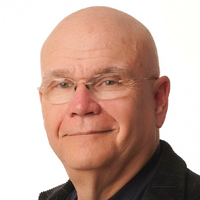You know about "Jersey Boys," the wildly successful jukebox musical that tells the real story of Frankie Valli and the Four Seasons. It's an engaging tale of 1960s pop stardom, conflict and small-time mobsters.
The Broadway musical that arrived at the Marcus Center Tuesday night could be called "Memphis Boys." It's about the only time three legends and a pioneering rockabilly artist jammed together at Sun Records Studio, the Memphis storefront recording business that birthed 60 years of pop culture.
"Million Dollar Quartet" is the show's actual title, and the national touring company is playing Uihlein Hall through Sunday.
Sam Phillips was a Memphis radio engineer who opened his recording studio in 1950. He had a knack for spotting talent and recorded an eye-popping list of superstar musicians early in their careers. B.B. King, Roy Orbison, Charlie Rich, Carl Perkins, Johnny Cash, Jerry Lee Lewis and Elvis Presley went through the Sun door to make records.
On Dec. 4, 1956, Perkins, Cash, Lewis and Presley gathered at the Sun recording studio. Perkins and Cash were under contract to Sun Records. Lewis was launching his career with the label.
Presley was a rapidly rising star, and owner Phillips had sold his recording contract to RCA Victor to lift the studio out of debt. It was the only time the four singer-musicians played together at Sun.
Writers Colin Escott and Floyd Mutrux took these basic facts and spun a fictitious plot to serve as the spine of a musical that features some of the foundational songs of rock 'n' roll. "Million Dollar Quartet," performed in one act and with a single set, was a huge hit in Chicago before heading off to Broadway.
The show is derivative of the two all-time champion jukebox musicals, "Jersey Boys" and "Mamma Mia." Its structure is quite similar to the former's, with direct narration setting the scene and moving the piece forward.
In "Quartet," Sam Phillips is the narrator, and unlike "Jersey Boys," the verbal interplay and supposed conflicts between the emerging musicians are conjecture. "Jersey Boys'" text is far superior, as is its clever staging.
Like "Mamma Mia," "Million Dollar Quartet" offers a mini-concert with glitzy costumes after the scripted portion of the show ends. Sequined dinner jackets drop from above the stage for Perkins, Cash, Lewis and Presley to don while they gyrate through four final songs.
To be honest, the whole show could simply be the concert. The singer-musicians in the touring company cast, backed by a drummer and bass player, are exceptional, and the sound in Uihlein Hall has been perfectly amped and overheated to present such rockabilly classics as "Blue Suede Shoes," "Hound Dog" and "Whole Lotta Shakin' Goin' On" with adrenaline pumping excitement.
The hot sound works against the spoken dialog, often making it difficult to decipher words, but who cares? The lines we can clearly hear are frequently lame and state the obvious.
Derek Keeling's portrayal of Johnny Cash is remarkable. He resembles a young Cash, but more importantly his speaking and singing voices are eerily close to the star's. "I Walk the Line," "Folsom Prison Blues" and "Riders in the Sky" send a few shivers up the spine.
Playing Elvis in this show requires more than the usual impersonator shtick, because this is a young, pre-jumpsuit Presley who needs to be a real and fresh person, not a wax museum figure. With a strong facial likeness to Elvis, an appealing Cody Slaughter possesses the natural hip-swiveling physicality of the youthful Presley, and he sounds like him, too.
The musical's writers chose to make Jerry Lee Lewis a childish clown. Although that gets annoying, Martin Kaye's keyboard pounding is every bit as incendiary as Lewis'.
The late Carl Perkins doesn't have the high profile public persona of the other three members of the quartet, and that frees the musician portraying him to concentrate on the music. A guitar playing Lee Ferris does that music justice.
"Million Dollar Quartet's" script adds a young female singer, supposedly a Presley girlfriend, to the mix. Kelly Lamont, a vocally versatile owner of great pipes, provides some fireworks on "Fever," "I Hear You Knocking" and as a complementary voice on other numbers.
Christopher Ryan Grant huffs and puffs his way through the Sam Phillips role, but it is difficult to fault him for his cardboard performance. The character is so one dimensional.
The bottom line here is this. Go to "Million Dollar Quartet" for the music. Ignore the story.
Damien has been around so long, he was at Summerfest the night George Carlin was arrested for speaking the seven dirty words you can't say on TV. He was also at the Uptown Theatre the night Bruce Springsteen's first Milwaukee concert was interrupted for three hours by a bomb scare. Damien was reviewing the concert for the Milwaukee Journal. He wrote for the Journal and Journal Sentinel for 37 years, the last 29 as theater critic.
During those years, Damien served two terms on the board of the American Theatre Critics Association, a term on the board of the association's foundation, and he studied the Latinization of American culture in a University of Southern California fellowship program. Damien also hosted his own arts radio program, "Milwaukee Presents with Damien Jaques," on WHAD for eight years.
Travel, books and, not surprisingly, theater top the list of Damien's interests. A news junkie, he is particularly plugged into politics and international affairs, but he also closely follows the Brewers, Packers and Marquette baskeball. Damien lives downtown, within easy walking distance of most of the theaters he attends.



